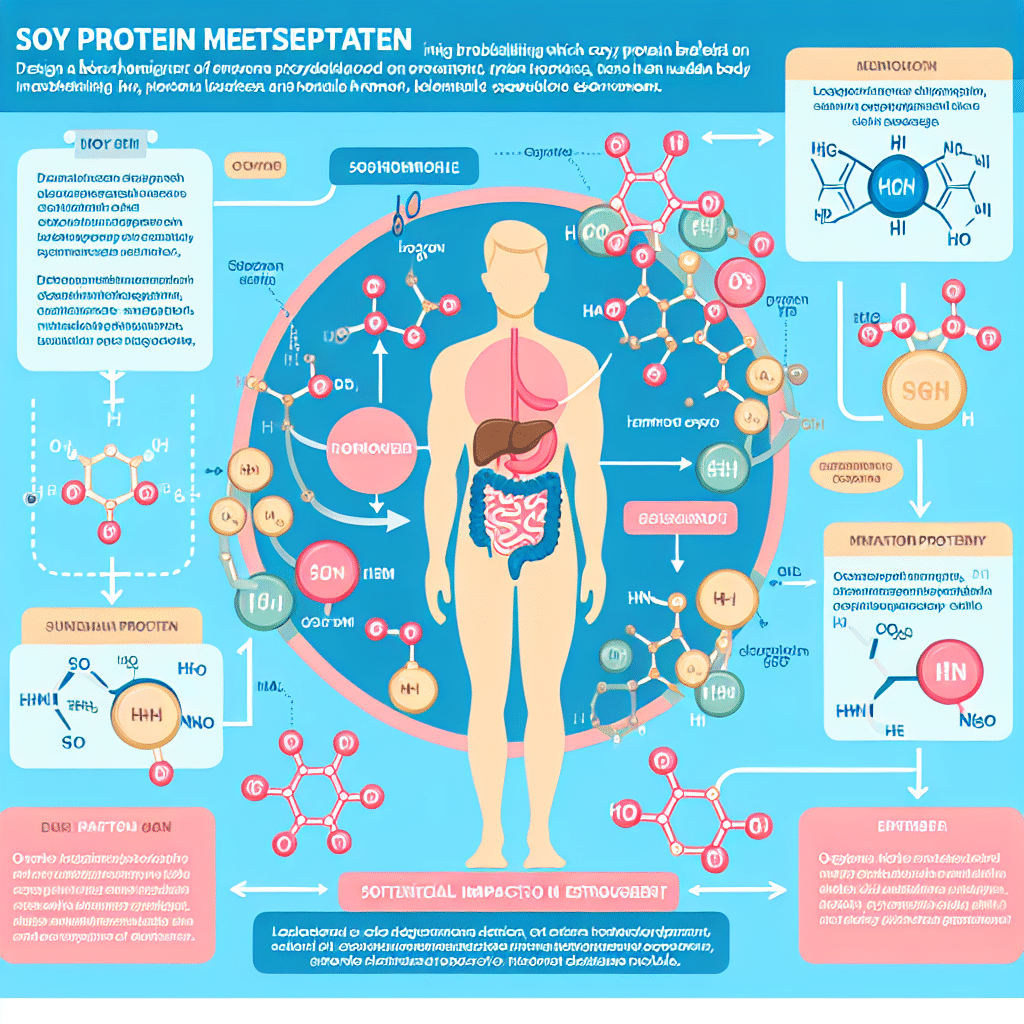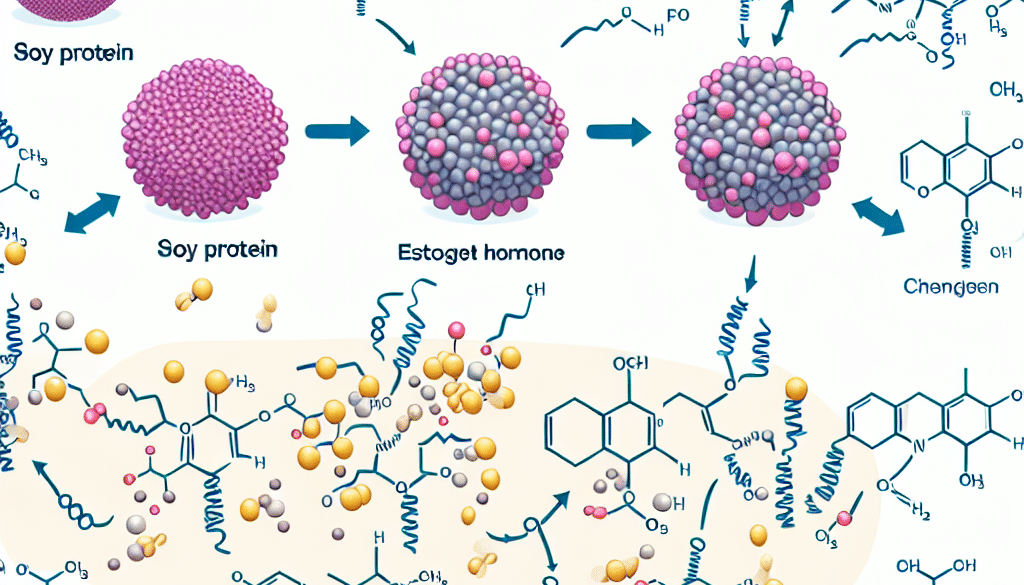Does Soy Protein Turn Into Estrogen?
-
Table of Contents
- Soy Protein and Estrogen: Unraveling the Myths and Facts
- Understanding Soy Protein and Its Components
- The Estrogenic Activity of Isoflavones
- Research on Soy Protein and Hormone Levels
- Case Studies and Clinical Trials
- Addressing Common Misconceptions
- Recommended Dietary Intake of Soy Protein
- Conclusion: Debunking the Estrogen Myth
- Discover ETprotein’s High-Quality Soy Protein Products
Soy Protein and Estrogen: Unraveling the Myths and Facts

Soy protein has become a popular alternative to animal-based proteins, especially among vegetarians, vegans, and those with dietary restrictions. However, its consumption has been surrounded by concerns and myths, particularly regarding its potential effects on hormone levels in the body. One of the most common questions is whether soy protein can turn into estrogen, a hormone primarily associated with female reproductive health. This article delves into the scientific evidence to address this concern and provide a clear understanding of the relationship between soy protein and estrogen.
Understanding Soy Protein and Its Components
Soy protein is derived from soybeans and is a complete protein, containing all nine essential amino acids required by the human body. Soybeans also contain naturally occurring compounds called isoflavones, which have a similar chemical structure to estrogen, the primary female sex hormone. These isoflavones, particularly genistein and daidzein, are often at the center of the debate regarding soy’s effects on hormone levels.
The Estrogenic Activity of Isoflavones
Isoflavones are classified as phytoestrogens, plant-derived compounds that can mimic or modulate the action of estrogen in the body. However, their binding affinity for estrogen receptors is significantly weaker than that of the body’s own estrogen. This means that while they can interact with estrogen receptors, their impact is much less potent.
Research on Soy Protein and Hormone Levels
Several studies have investigated the effects of soy protein and isoflavones on hormone levels in both men and women. The majority of this research indicates that moderate consumption of soy protein does not significantly alter estrogen levels or have adverse effects on reproductive health.
- A meta-analysis published in Fertility and Sterility found that soy isoflavones do not affect the levels of bioavailable testosterone or estrogen in men.
- Research in the Journal of the American Dietetic Association concluded that soy consumption does not adversely affect male reproductive hormones.
- Studies on postmenopausal women have shown that soy isoflavones may provide some benefits, such as reducing the risk of breast cancer and alleviating menopausal symptoms, without significantly impacting overall estrogen levels.
Case Studies and Clinical Trials
Case studies and clinical trials provide valuable insights into the real-world effects of soy protein on hormone levels. For instance, a study on postmenopausal women who consumed soy protein with isoflavones showed a modest improvement in bone density without negative hormonal changes. Another clinical trial involving men consuming soy protein isolate found no significant impact on serum hormone concentrations.
Addressing Common Misconceptions
Despite the scientific evidence, misconceptions about soy protein and estrogen persist. It is crucial to differentiate between the effects of phytoestrogens and the body’s own estrogen. Phytoestrogens have a much weaker effect and can even act as anti-estrogens by competing with stronger estrogens for receptor sites, potentially reducing the overall estrogenic effect in the body.
Recommended Dietary Intake of Soy Protein
Health organizations, including the American Heart Association and the American Cancer Society, recognize the benefits of including soy protein in a balanced diet. The general recommendation is that consuming 1-2 servings of soy foods per day is safe and can be part of a healthy diet.
Conclusion: Debunking the Estrogen Myth
In conclusion, the preponderance of scientific research suggests that soy protein does not turn into estrogen in the body. Moderate consumption of soy protein, including its isoflavones, is unlikely to have significant effects on hormone levels or pose health risks. Instead, soy protein can be a valuable part of a nutritious diet, offering benefits such as improved heart health and potential protective effects against certain cancers.
Discover ETprotein’s High-Quality Soy Protein Products
If you’re looking to incorporate soy protein into your diet, ETprotein offers a range of high-quality protein products that cater to various dietary needs. Their soy protein offerings are characterized by a neutral taste, non-GMO, and allergen-free attributes, ensuring that you can enjoy the benefits of soy protein without compromising on quality or taste.
About ETprotein:
ETprotein, a reputable protein and L-(+)-Ergothioneine (EGT) Chinese factory manufacturer and supplier, is renowned for producing, stocking, exporting, and delivering the highest quality organic bulk vegan proteins and L-(+)-Ergothioneine. They include Organic rice protein, clear rice protein, pea protein, clear pea protein, watermelon seed protein, pumpkin seed protein, sunflower seed protein, mung bean protein, peanut protein, and L-(+)-Ergothioneine EGT Pharmaceutical grade, L-(+)-Ergothioneine EGT food grade, L-(+)-Ergothioneine EGT cosmetic grade, L-(+)-Ergothioneine EGT reference grade and L-(+)-Ergothioneine EGT standard. Their offerings, characterized by a neutral taste, non-GMO, allergen-free attributes, with L-(+)-Ergothioneine purity over 98%, 99%, cater to a diverse range of industries. They serve nutraceutical, pharmaceutical, cosmeceutical, veterinary, as well as food and beverage finished product distributors, traders, and manufacturers across Europe, USA, Canada, Australia, Thailand, Japan, Korea, Brazil, and Chile, among others.
ETprotein specialization includes exporting and delivering tailor-made protein powder and finished nutritional supplements. Their extensive product range covers sectors like Food and Beverage, Sports Nutrition, Weight Management, Dietary Supplements, Health and Wellness Products, and Infant Formula, ensuring comprehensive solutions to meet all your protein needs.
As a trusted company by leading global food and beverage brands and Fortune 500 companies, ETprotein reinforces China’s reputation in the global arena. For more information or to sample their products, please contact them and email sales(at)ETprotein.com today.












